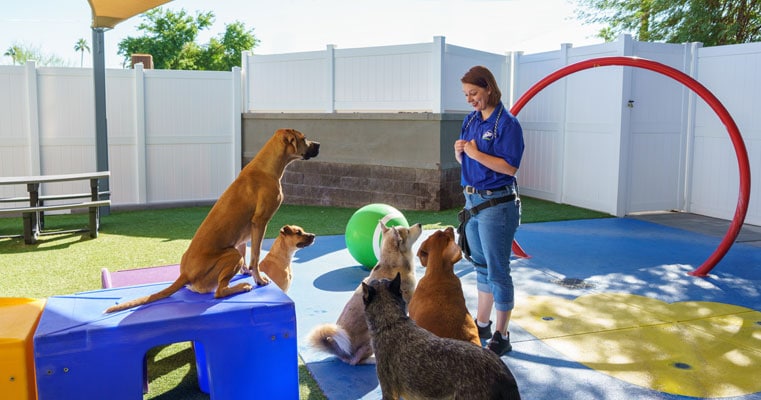The Ultimate Guide to Dog Training Charlotte: Techniques for Success
The Ultimate Guide to Dog Training Charlotte: Techniques for Success
Blog Article
Unlock Your Pet dog's Possible: Proven Pet Training Strategies for Success
Effective canine training is a nuanced process that hinges on comprehending canine actions and using medically backed strategies. dog training near me. By integrating positive reinforcement, establishing clear commands, and prioritizing socialization, canine proprietors can cultivate an effective relationship with their family pets. Difficulties typically develop that need customized options and a client method. Exploring these proven methods discloses not just the capacity for behavioral renovation yet likewise the deeper bond that can be formed in between owner and canine. What important strategies must be taken into consideration to genuinely unlock your dog's possibility?
Recognizing Canine Behavior
Comprehending dog actions is vital for reliable training and promoting a favorable connection in between canines and their proprietors. A detailed understanding of canine body language, articulations, and social interactions is critical for acknowledging their feelings and needs. Pet dogs connect mainly via non-verbal cues; for instance, a wagging tail might suggest exhilaration, while pinned ears can signal concern or entry.

In addition, ecological variables play a substantial duty in forming a pet's actions. Modifications in routine, new surroundings, or the presence of strange people can bring about stress and anxiety or anxiousness in pet dogs. Acknowledging these triggers allows owners to mitigate damaging responses and establish appropriate training strategies.
Ultimately, a deep understanding of dog actions lays the structure for successful training methods, boosting both habits and the general bond between the pet and its owner. dog training near me. This knowledge is indispensable for cultivating a well-adjusted, delighted canine companion
Favorable Reinforcement Methods
Effective training counts heavily on favorable support techniques, which have actually been shown to generate considerable results in forming desired actions in canines. This approach includes rewarding a pet for displaying specific habits, thereby raising the possibility that these actions will be duplicated. Rewards can take numerous forms, consisting of deals with, praise, playthings, or playtime, depending upon what motivates the private pet.

It is vital to slowly eliminate rewards as the pet finds out the habits, transitioning to intermittent support. This approach preserves the behavior over time while protecting against reliance on constant incentives. By concentrating on positive support, fitness instructors can cultivate a relying on connection with their dogs, advertising a healthy and cooperative training setting that improves total obedience and performance.
Establishing Constant Commands
A fundamental facet of successful pet training is the establishment of regular commands. Consistency in commands is crucial for reliable communication in between the canine and the instructor. When commands are uniform, pets these details learn to link details words with desired habits, which increases the training process and enhances understanding.
To develop constant commands, it is essential that all relative make use of the very same terms and motions. For instance, if someone utilizes "rest" while an additional states "rest down," it can create confusion for the pet dog. Select clear, unique words for commands and ensure everybody associated with the pet's training sticks to these options.
In addition, rep is essential. Strengthen commands via constant practice, guaranteeing that the pet dog obtains ample chances to respond properly. When a pet efficiently follows a command, immediate positive reinforcement ought to comply with. This might be in the kind of deals with, appreciation, or play, strengthening the link in between the action and the command.
Lastly, be patient. Establishing regular commands requires time and initiative. With devotion and clearness, you click for more will help your dog develop a solid understanding of assumptions, eventually causing a well-behaved companion.
Socializing and Direct Exposure
Mingling a canine is vital for fostering a certain and well-adjusted buddy. This process involves revealing your pet dog to a variety of environments, individuals, and other pets to establish their social skills and adaptability. Early socializing, ideally in between the ages of three to fourteen weeks, is essential, as it lays the foundation for a pet dog's future behavior.
Throughout socialization, purpose to supply positive experiences in various settings, such as parks, active streets, and homes with various other family pets. Introduce your pet to different stimulations, including audios, sights, and scents, guaranteeing that each experience is satisfying. This exposure assists mitigate concern and anxiety, leading the way for a much more resilient pet dog.
Taking part in regulated team play sessions with other pets can also improve social skills, showing your pet dog suitable communications and boundaries. Constantly check your canine's convenience level during these experiences, progressively increasing exposure as their self-confidence grows. Keep in mind, the objective is to develop a well-rounded pet that grows in diverse scenarios, promoting a harmonious partnership with both human beings and other animals. Focusing on socializing will significantly contribute to your pet's total happiness and behavior throughout their life.
Overcoming Common Training Challenges

Pets may have a hard time to concentrate in busy or unknown settings. Slowly desensitize your pet to interruptions by starting training in a silent setting and slowly introducing even more stimulations as they come to be competent.
Furthermore, behavior concerns like jumping or excessive barking can end up being discouraging. Address these by educating alternative behaviors, such as sitting comfortably when welcoming visitors. Uniformity and perseverance are essential; strengthen preferred habits constantly and stay clear of abuse, which can bring about complication.
Lastly, recognize that each dog is distinct, and training timelines may vary. Tailor your approach to your canine's individual needs, and seek professional guidance if required. With perseverance and the right strategies, conquering these challenges can lead to a well-trained, happy canine friend.
Verdict
To conclude, opening a pet dog's prospective necessitates an extensive approach that incorporates an understanding of canine actions, the application of favorable reinforcement techniques, and the facility of regular commands. Early socialization and exposure to varied settings additionally enhance a dog's flexibility and self-confidence. By dealing with common training obstacles with customized techniques and patience, a cooperative and unified relationship in between pet dog and handler can be cultivated, eventually resulting in a mannerly straight from the source buddy with the ability of prospering in various scenarios.
Efficient dog training is a nuanced procedure that hinges on recognizing canine actions and utilizing medically backed methods.Understanding dog actions is important for reliable training and cultivating a positive partnership between pet dogs and their owners.Efficient training relies heavily on favorable reinforcement methods, which have been shown to generate significant outcomes in shaping preferred actions in canines. When commands are consistent, dogs discover to link specific words with wanted actions, which accelerates the training process and boosts understanding.
In conclusion, unlocking a pet's potential requires a thorough approach that integrates an understanding of canine actions, the application of favorable reinforcement methods, and the facility of regular commands.
Report this page